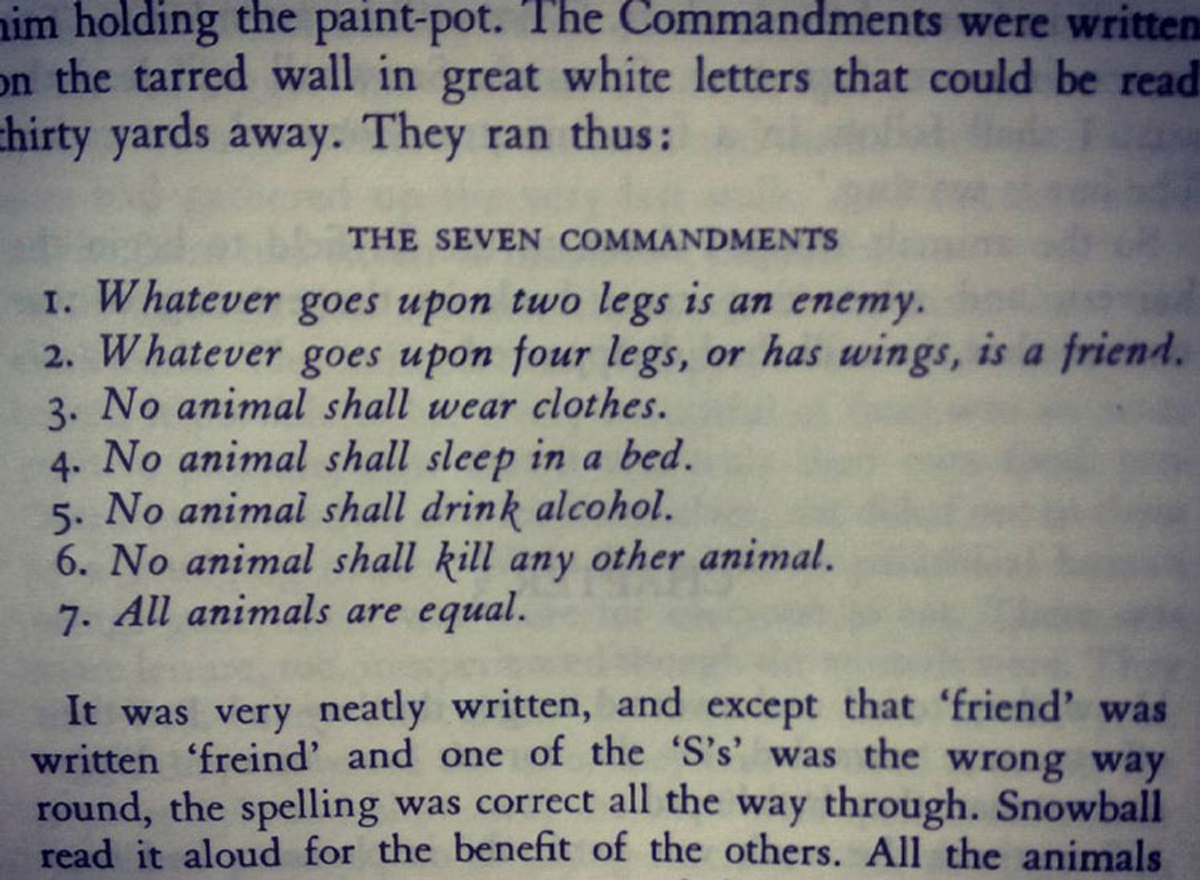Animal Farm Chapter 2 Summary: Power, Corruption, and Rebellion on the Farm. This chapter sets the stage for the novel’s exploration of power, corruption, and rebellion, as the animals struggle to maintain their newfound freedom and equality.
The chapter begins with the pigs taking control of the farm and establishing a set of rules for the animals. However, the pigs soon begin to abuse their power, and the other animals start to question their authority.
Introduction

Chapter 2 of “Animal Farm” marks a crucial turning point in the narrative. It depicts the pigs’ gradual manipulation of power and the animals’ increasing disillusionment with their newfound freedom.
Key events in chapter 2 include:
- The pigs take control of the milk and apples, citing their need for intellectual nourishment.
- Snowball and Napoleon emerge as rival leaders, each vying for the animals’ support.
- The pigs alter the Seven Commandments to suit their agenda, undermining the principles of Animalism.
Major Themes and Symbols: Animal Farm Chapter 2 Summary

Chapter 2 of Animal Farm delves into the complex themes of power, corruption, and rebellion, which are embodied through the symbolic significance of the animals and their actions.
Power and Corruption
The pigs’ gradual rise to power is a chilling allegory of the corrupting influence of authority. Their manipulation of the other animals through propaganda and intimidation highlights the dangers of unchecked power and the ease with which it can be abused.
Rebellion, Animal farm chapter 2 summary
The animals’ initial rebellion against Mr. Jones represents the oppressed masses’ yearning for freedom and equality. However, as the pigs consolidate their power, the rebellion is subverted, demonstrating the challenges of maintaining revolutionary ideals in the face of adversity.
Symbolic Significance of Animals
The animals in Animal Farm represent different social classes and human traits:
- Pigs: Ruling class, intelligent but manipulative
- Horses: Working class, loyal but exploited
- Sheep: Ignorant masses, easily swayed by propaganda
- Dogs: Secret police, enforcing the pigs’ authority
- Mr. Jones: Human oppressor, representing tyranny
Through these symbols, Orwell explores the dynamics of power, corruption, and rebellion in a profound and timeless manner.
Character Development

The characters in Animal Farm undergo significant development throughout the novel. This is particularly true of the pigs, who emerge as the leaders of the animal rebellion. Two of the most important pigs are Napoleon and Snowball, who represent opposing forces within the animal community.
Napoleon
Napoleon is a ruthless and ambitious pig who is driven by a desire for power. He is cunning and manipulative, and he is willing to use violence to achieve his goals. As the novel progresses, Napoleon becomes increasingly dictatorial, and he eventually establishes a totalitarian regime on the farm.
Snowball
Snowball is a charismatic and idealistic pig who is committed to the principles of animalism. He is intelligent and resourceful, and he is able to inspire the other animals with his vision of a better future. However, Snowball is also naive and idealistic, and he is no match for Napoleon’s cunning and ruthlessness.
End of Discussion

Animal Farm Chapter 2 Summary: Power, Corruption, and Rebellion on the Farm. This chapter is a powerful indictment of totalitarianism and a reminder of the importance of fighting for freedom and equality.
Question & Answer Hub
What are the main themes of Animal Farm Chapter 2?
The main themes of Animal Farm Chapter 2 are power, corruption, and rebellion.
Who are the main characters in Animal Farm Chapter 2?
The main characters in Animal Farm Chapter 2 are the pigs, Napoleon and Snowball.
What happens in Animal Farm Chapter 2?
In Animal Farm Chapter 2, the pigs take control of the farm and establish a set of rules for the animals. However, the pigs soon begin to abuse their power, and the other animals start to question their authority.

